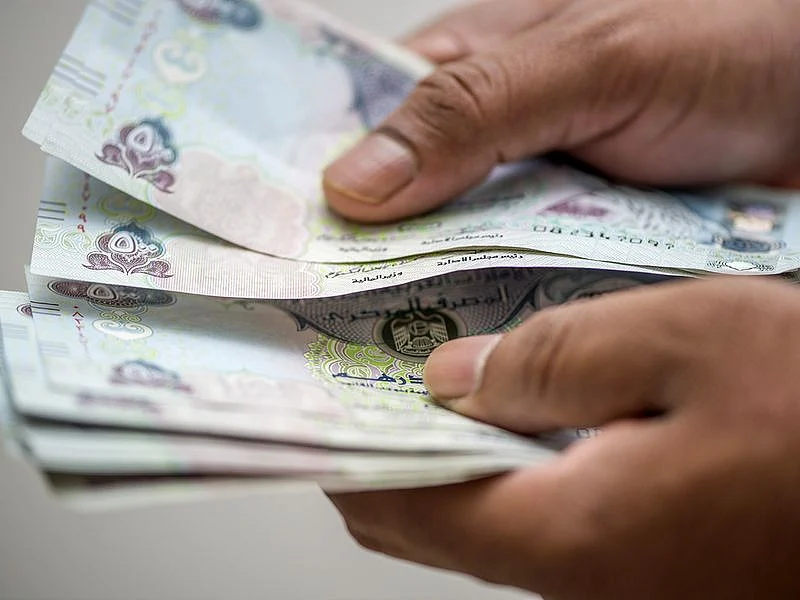How to send money without a bank account in the UAE
Send money home from the UAE without a bank using low-fee apps and prepaid cards

Dubai: In the UAE, not everyone qualifies for a traditional bank account, particularly domestic workers, freelancers, new arrivals, and blue-collar employees who may not meet minimum salary requirements. But that doesn’t mean they’re shut out of essential financial services.
International money transfers have become faster and more affordable, with digital platforms now offering low or even zero transfer fees.
From digital wallets to prepaid cards and remittance apps, underbanked residents have more options than ever to manage money and send funds home, no bank account needed. Here’s how.
Digital wallet apps with no bank account required
Al Ansari Exchange operates one of the UAE’s most widely used wallets. Its app allows users to receive salary, pay bills, send money locally and abroad, and even make payments using a QR code or phone number.
Al Ansari has also launched digital versions of its popular pre-paid cards like the TravelCard and FlexiblePay, which are now available directly through the app.
myZoi is a UAE-based fintech designed to promote financial inclusion. Its wallet focuses on reducing remittance fees for underbanked users.
One unique feature is its 'One-to-Many' transfer option, which lets users send money to up to five recipients in one go for the cost of a single transaction - ideal for workers supporting multiple family members.
Other widely used platforms include:
e& money (formerly Etisalat Wallet): Allows international transfers, bill payments, and mobile top-ups. No bank account required.
Botim Pay: Integrated within the Botim app, it supports remittances to India, Pakistan, the Philippines, Egypt, and more.
Careem Pay: Built into the Careem super app, this wallet supports international transfers and is powered by Mastercard Send.
Payit (by First Abu Dhabi Bank): While operated by a bank, it doesn’t require users to hold a FAB account. It supports transfers, bill payments, and includes a prepaid Visa card for everyday use.
Prepaid and salary cards from exchange houses
Many unbanked workers in the UAE receive their salaries through prepaid debit or salary cards issued by exchange houses like Al Ansari Exchange and LuLu Exchange, or by fintech providers such as Payit and e& money.
These reloadable cards function like regular debit cards - they can be used to withdraw money from ATMs, pay for purchases in-store or online, and even transfer money abroad. Most are Visa or Mastercard branded, which makes them widely accepted across the UAE and internationally.
What makes these cards especially helpful is that:
No bank account is needed to use or activate them.
They are often linked to the UAE’s Wage Protection System (WPS), allowing employers to deposit salaries directly.
Cards can be reloaded by employers or users themselves via kiosks, apps, or exchange branches.
Some cards are connected to digital wallets or mobile apps, enabling users to check balances, manage transactions, and access remittance services.
Online remittance platforms for bank-free transfers
These platforms allow users to transfer funds directly to bank accounts, mobile wallets, or cash pickup locations in dozens of countries.
Here are some of the most popular options:
Al Ansari Exchange App
Offers transfers to over 200 countries with instant cash pickup.
Fees typically range from AED 15 to 25.
Higher transfer limits available for verified users (up to AED 25,000 per day).
LuLu Money
Widely used among Indian, Filipino, and Bangladeshi communities.
App shows real-time exchange rates and occasional fee waivers.
Daily transfer limit up to AED 20,000.
e& money
Transfers abroad at competitive rates for free for some countries and low fees for others.
Monthly limits are between 25,000 and 60,000 based on customer segment.
Customers can send to banks. wallets or as cash pickup.
Western Union App
Known for fast and reliable transfers worldwide.
Options for bank deposit, mobile wallet, and cash pickup.
Higher fees for card payments; limits up to AED 18,500 per transaction.
Remitly
Offers Economy (cheaper) and Express (faster) transfers.
Fees range from AED 5 to 15, depending on urgency and destination.
Monthly limits between AED 18,000 and 37,000 based on verification level.
Wise
Transparent fee structure and real exchange rates.
Supports multi-currency wallet and global money transfers.
High monthly limits for verified users — up to AED 200,000.
Botim Pay & Careem Pay
Integrated into their respective super apps.
Enable direct international transfers from app wallets.
Limits are typically up to AED 10,000 per transaction.
Denarii Cash
UAE-based startup focused on the underbanked.
Allows bill payments, mobile recharges, and transfers across Asia and Africa.
Limits range from AED 3,000–5,000 per day.
Taptap Send
Mobile-first platform with no visible fees (markup on exchange rate).
Serves South Asia, Africa, and the Philippines.
Transaction limit up to AED 37,000, with rolling caps applied.
What you need to register
Most digital wallets and remittance apps have a straightforward registration process. Basic requirements typically include:
Emirates ID (mandatory for all platforms)
UAE mobile number and email address
In some cases, facial recognition or a selfie
For higher limits, you may be asked for proof of address or employment/income documentation
Verifying your account through these steps known as full KYC (Know Your Customer), usually increases your transfer and spending limits significantly.
Sign up for the Daily Briefing
Get the latest news and updates straight to your inbox
Network Links
GN StoreDownload our app
© Al Nisr Publishing LLC 2026. All rights reserved.